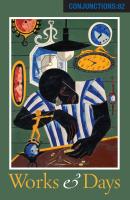Contributor History
- The Life Sentence, A Missing Passage from “The House of the Dead”, Conjunctions:31
- From The Adolescent, Conjunctions:38
Biography
Fyodor Dostoevsky’s (1821–1881) first novel, Poor Folk, was published in 1846 to great acclaim. In the early 1860s he edited two magazines, Time and Epoch, in collaboration with his brother Mikhail. Both magazines were closed by the censors, and in 1864 his wife and brother both died, leaving him in charge of their families and deeply in debt. In that same year he wrote Notes from Underground, which was the prelude to the five great novels that crowned his work: Crime and Punishment (1866), The Idiot (1868), Demons (1872), The Adolescent (1875), and The Brothers Karamazov (1880).
